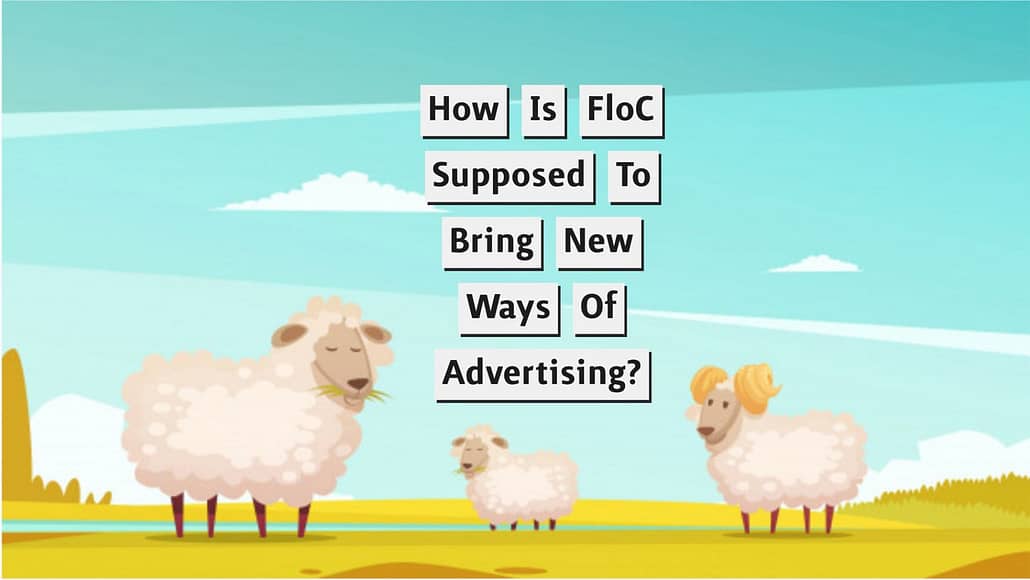What Is FloC? Should Advertisers Become A Sheep?
Google has been working as a leader to replace third-party cookies with their new technologies to target advertisements on the internet. Now, Google has officially opened up on its unique way of measuring and delivering advertisements to Chrome users. Goggle has launched FloC that stands for Federated Learning of Cohorts, and it is a solution that focuses on privacy and provides ads to Chrome users. Google believes that FloC can effectively replace third-party cookies. And, if Google sticks to this plan, Chrome will not allow websites to use third-party cookies from next year. So, let’s read about what is FloC? And how Google plans targetting ads with FloC?
What Is FloC?
To put it simply, FloC is a browser standard that will show interest-based ads to Chrome users without third-party cookies. It will let you associate with a cohort, a group of users adequately large enough to make you unknown to the companies/websites focusing on you.
Now, let’s see the technical part, which can be pretty confusing but here you will get the easiest explanation of how targeting ads with FloC is to be done.
Most people use Chrome as their primary browser, and you must be using it too. Chrome browsers will be using algorithms that create cohorts, a group of users having similar interests. Each user’s browsing history is kept safe and private only browsers can look at it to assign the user a cohort.
Whenever a user visits a website, Chrome will let the site know that you belong to which cohort (a cohort ID assigned to every cohort). Then, it is up to the site to realize that you belong to which interest group. Cohorts are not small groups. These are large enough to disguise your identity to protect your privacy.
How Is FloC Supposed To Bring New Ways Of Advertising?
Earlier, websites have been using third-party cookies to target ads to the users. But now the scenario of the market is changing. Google proposed FloC to bring new ways of advertising. Floc and the new ways of advertising can be said in a single sentence as this might be the start of replacing third-party cookies.

- FloC and the new ways of advertising include cohorts. Cohorts can be helpful to advertisers. The advertisers can choose from these cohorts for targeted ads.
- Advertisers are loving the idea of targetting individual users through cohorts.
- Cohorts can be revolutionary if the privacy remains intact. Google is confident that Privacy Sandbox is the best way to improve users’ privacy while also being beneficial for advertisers and publishers.
- According to Google’s early testing, when compared to cookie-based advertising methods, FloC is delivering 95% of the conversion per dollar.
- The new browser standard balances the interests of publishers, advertisers, consumers, and of course, Google.
- FloC can be an excellent standard for websites that want to reach the right consumers for their products.
- FloC uses AI models to predict the probability of a client will convert over-dependent on their cohort to inform advertisement sell-off offering behavior.
Benefits Of FloC
- Advertisers are keener on serving Interest-based ads to the clients, as they trust it will be more relevant to the clients. To serve interest-based ads, advertisers are depending on third-party cookies, which are causing privacy issues to the clients, and that is the place where FLoCs come in.
- FLoCs would wipe out the requirement for advertisers to drop third-party cookies on the client’s browser to follow and deliver interest-based ads around the web.
Why Is There A Need For FloC?
To drive traffic to their websites, many businesses rely upon advertising. Publisher websites sell the advertising inventory to fund their content. Web users want to see relevant ads, and by displaying ads to the right people, advertisers are in benefit. At the end of the day, ad space is more significant when it shows relevant advertisements. Along these lines, choosing relevant ads expands revenue for advertising-providing sites. That, like this, implies that important ads help fund content creation that benefits clients. The whole idea behind FloC is to target interest-based ads to the users. FLoC aims to do more effective ad distribution without compromising privacy.
How Can Digital Advertisers/Marketers Use FloC For Their Benefit?
- The focal idea for the current FLoC is that the program makes cohorts of users to guarantee they can’t be identified separately, ensuring privacy. It searches for similar ongoing browsing activities to cluster individuals into cohorts of similar interests.
- Digital Advertisers can likewise utilize their own machine learning algorithms and predictive analytics capacities to settle on choices on what crowds or interests or cohort IDs may address.
- FLoC is pointed toward giving advertisers the very abilities that they have with third-party cookies. Yet, the big contrast is the privacy center around doing this dependent on cohorts instead of people.
- Cohorts are dynamic and will update weekly during the preliminary period.
- The point is to build up a supportable, long-haul plan that secures client privacy by keeping information on-device and gives advertisers and publishers answers for prevailing in a privacy-first world.
- FloC will allow marketers to access the relevant data they need to make critical market decisions.
- Marketers can use their own technology to identify cohort IDs.
- While advertisers won’t do balanced focusing of individual clients in FLoC or use their first-party data to make FLoCs, they will actually want to use their own first-party data to help figure out which FLoCs they need to reach.
Conclusion
The FLoC model addresses the future of advertisements for Google and an endeavor to have it the two different ways: give advertisers the information they need to ascribe and collect data while keeping up people’s privacy on the web.
FloC is designed to replace third-party cookies. Targeting ads with FloC is based upon interest groups called cohorts. The individual data of the user will not be shared or uploaded outside of the browser. Instead, only the cohort ID will be shared with the advertisers, which guarantees privacy. Google, now, and target ads, but it will do so now in a less creepy way. However, FloC can only be used on Google Chrome as of now.



